Invited Speakers-REPE 2025
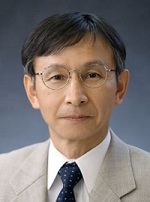
Prof. Hirohito YAMADA, International Research Institute of Disaster Science, Tohoku Univ. (Visiting Professor), Japan
Hirohito Yamada received his B.E. degree in electronics engineering from Kanazawa University, Japan in 1981, and his M.E. and Ph.D. degrees in electronics engineering from Tohoku University, Japan in 1983 and 1987, respectively. In 1987, he joined NEC Corporation, where he conducted research on semiconductor lasers and Si nano-photonic devices for optical fiber communication systems. In 2006, he became a professor at Tohoku University, where he has been dedicated to teaching communication engineering and researching photonic integrated devices. Following the Great East Japan Earthquake in 2011, he expanded his research to include solar power generation and DC microgrids. He even built an off-grid house and has lived without purchasing electricity from the utility company for over eight years. Although he retired from Tohoku University in March 2024, he still continue his research on autonomous decentralized cooperative controlled microgrids at the International Research Institute of Disaster Science (IRIDeS), Tohoku University, from April onwards.
Speech Title: Proposal of a hierarchical structure for standardization of DC grid systems
Speech Abstract: Demonstration experiments and social implementation of DC microgrids are being conducted worldwide, but their installation purposes, configurations, baseline voltages, and other factors vary widely. Consequently, interconnection, let alone standardization of the devices used, has not been achieved, nor have DC microgrids become open systems that allow individuals to freely construct their own grids. In this lecture, a hierarchical structure of the system is proposed to classify roles and functions for the standardization of DC microgrids. Specifically, inspired by the OSI reference model in communication systems and internet protocols, the DC grid system hierarchy is divided into three major layers. The lowest layer, the physical layer, is the baseline, represented by power lines, whose primary function is the exchange of power between devices. The next layer, the control layer, involves distributed power sources with DC/DC converters that provide fundamental control and functionality to maintain the grid, such as stabilizing the grid with electrical inertia, coordinating operations between devices, equalizing power distribution within the grid, detecting grid anomalies, and implementing safety features. The highest layer, the application layer, hosts applications like energy management systems (EMS) or power trading, which fulfill the primary purposes of the grid. By segmenting the grid system into these hierarchical structures, it is expected that standardization and openness will advance, like communication systems.
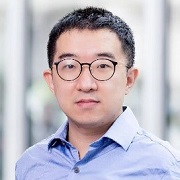
Prof. Yu Wang, Chongqing University, China
Yu Wang is a Professor and Hongshen Outstanding Scholar at Chongqing University. He is a IEEE Senior Member, recognized as one of Stanford's Global Top 2% Most Cited Scientists, and a top 1% Highly Cited Researcher by Web of Science. With over 100 papers published in international journals and conferences, his work has garnered over 4,000 citations. He serves as editorial board member for Journal of Modern Power Systems and Clean Energy, and IET Generation, Transmission & Distribution, and holds committee positions at the Chinese Association of Automation (Committee of New Energy and Energy Storage Systems) and China Energy Society (Smart Microgrid Committee). His research focuses on power system analysis and control, microgrid and distributed energy resource, and artificial intelligence applications in power systems.
Speech Title: Integrated Knowledge-Data Driven Operation and Control for Microgrids
Abstract: With the large-scale integration of distributed energy resources into multi-level power distribution systems, networked microgrids are gradually evolving into a new form of energy interconnection with regional autonomous capabilities. Characterized by massive device populations, significant dynamic heterogeneity, and operational uncertainty, this system poses substantial challenges to traditional centralized control paradigms. In recent years, machine learning methods have emerged as innovative solutions to address these challenges. By integrating multi-source measurement data from both internal and external systems to train intelligent agents, these approaches can effectively uncover latent evolutionary patterns and disturbance propagation characteristics in complex dynamic systems, thereby establishing environment-adaptive optimization decision-making models. This presentation will unfold across three dimensions: First, it will analyze typical application scenarios of microgrids and their core control requirements. Subsequently, it will examine critical bottleneck issues in knowledge-data fusion driven collaborative regulation. Finally, it will highlight our team's research advancements in intelligent operation and control of microgrids. By constructing a knowledge-guided and data-driven collaborative intelligent regulation architecture, this work provides theoretical foundations and technical pathways for efficient coordination of diversified resources in next-generation power systems.
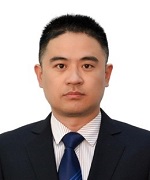
Assoc. Prof. Xueqian Fu, China Agricultural University, China
Xueqian Fu (Senior Member, IEEE) is the Vice Chairperson of the IEEE Smart Village-China Committee, and an active member of IEEE Young Professionals. He is currently an Associate Professor at China Agricultural University. He has been recognized as one of the Stanford/Elsevier Top 2% Scientists in the field of energy for both the 2023 and 2024 rankings. Prof. Fu received his B.S. and M.S. degrees from North China Electric Power University in 2008 and 2011, respectively, and his Ph.D. degree from South China University of Technology in 2015. From 2015 to 2017, he was a Postdoctoral Researcher at Tsinghua University. His current research interests include statistical machine learning, agricultural energy internet, and PV system integration. He serves as the Deputy Editor-in-Chief for Information Processing in Agriculture and is also the founding chair of the 2025 IEEE International Symposium on the Application of Artificial Intelligence in Electrical Engineering.
Speech Title: The Agricultural Energy Internet: Theories, Methods, and Future Prospects
Speech Abstract: The Agricultural Energy Internet: Theories, Methods, and Future Prospects provides a pioneering guide to the grid integration and impact of agricultural energy systems for a distributed and sustainable power grid. This book begins with an introduction to fundamental concepts that is followed by a comprehensive safety analysis considering crop physiological characteristics. Subsequent chapters delve into enhancing the synergy of agriculture, energy, and the environment through carbon monitoring, optimal management strategies for rural microgrids, and distributed energy planning.
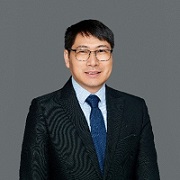
Assoc. Prof. Leijiao Ge, Tianjin University, China
Leijiao Ge (Senior Member, IEEE) received Ph.D. degree in electrical engineering from Tianjin University, Tianjin, China, in 2016. He is currently an associate professor in the school of electrical and information engineering at Tianjin University. His main research interests are situational awareness of smart distribution network, status awareness of rail transit power supply system, optimization control of new energy, and artificial intelligence empowered microgrid and distribution network.
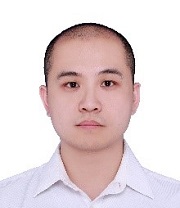
Assoc. Prof. Xingshuo Li, Nanjing Normal University, China
Xingshuo Li obtained the Ph.D. degree from the University of Liverpool, Liverpool, U.K. in 2019. Currently, he serves as an Associate Professor at the School of Electrical and Automation Engineering, Nanjing Normal University. He has published over 30 SCI-indexed research papers and two of his work were recognized as ESI Highly Cited Papers in 2019 and 2021, respectively. Since 2022, he has been recognized in “Stanford University's prestigious World's Top 2% Most Influential Scientists” list. His research interest includes renewable energy technology and power electronics, especially ancillary service, power forecasting, and fault diagnosis in Photovoltaic systems.
Speech Title: Image-Based Soiling Loss Estimation and Real-Time Fault Diagnosis for PV Systems
Abstract: Photovoltaic (PV) systems are pivotal in global renewable energy deployment, yet their performance is significantly impacted by environmental factors such as surface soiling and electrical faults. Large-scale PV plants, comprising thousands of solar panels, face critical challenges in maintaining efficiency due to these issues. Traditional methods for soiling assessment and fault diagnosis often rely on additional sensors, curve-scanning processes, or data-intensive machine learning models, which increase system complexity, cost, and operational interruptions. This presentation introduces two innovative approaches to address these challenges. First, we propose a novel and comprehensive method for estimating power loss in soiled PV modules, combining circuit topology analysis with image processing. This solution significantly improves estimation accuracy (from 11.02% to 39.52%) compared to conventional data-driven methods, validated across various soiling conditions including sand, dust, and talcum powder. Second, we present a real-time fault diagnosis scheme for large-scale PV plants that distinguishes genuine faults from environmental effects like partial shading without requiring additional hardware. The method analyses both short- and long-term system characteristics to enhance robustness, with effectiveness demonstrated through extensive simulations and experimental tests. Together, these techniques offer practical solutions for improving PV system reliability and maintenance efficiency.
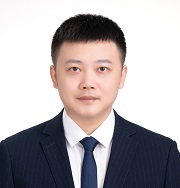
Dr. Chenwei Ma, Southwest Jiaotong University, China
Dr. Chenwei Ma is currently an Assistant Professor with the Department of Electrical Engineering, Southwest Jiaotong University, China, where he focuses on high-performance control and health management of electric drive systems. He received the PhD degree in Electromechanical Engineering from Ghent University, Belgium, in 2021. After that, he worked at the Department of Electromechanical, Systems and Metal Engineering, Ghent University as a postdoctoral researcher. He has published more than 50 peer-reviewed journal/conference papers. He was selected for a Sichuan Province Young Talent Program. He obtained the First Prize of Science and Technology Progress from China Power Supply Society and the Second Prize of Science and Technology Progress from China Railway Society. He is the supervisor of more than ten research projects, including Youth Program of National Natural Science Foundation of China (NSFC). He is currently a Young Editorial Board Member of Journal of Artificial Intelligence and Control System, and journal of Unmanned Systems Technology.
Speech Title: High-robustness Online Fault Diagnosis Technologies for Electric Traction System
Abstract: Ensuring high-reliability operation in rail transit traction systems necessitates rapid detection and precise localization of typical traction motor faults. Addressing the challenge that closed-loop control masks fault signatures, this report advocates for deep integration of fault diagnosis with motor control methodologies. Focusing on Model Predictive Control (MPC) as a promising framework, it explores leveraging inherent MPC components—the predictive model, cost function, and switching pulses—to establish low-complexity online fault detection and isolation methods without requiring additional dedicated observers, enabling highly sensitive rapid diagnosis in early fault stages. Furthermore, the report discusses utilizing digital twin modeling technology to provide comprehensive solutions for health status monitoring of electric traction systems.
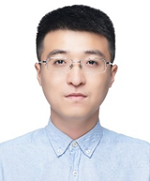
Dr. Ningning Ma, Tsinghua University, China
Dr. Ningning Ma is an Assistant Researcher at Tsinghua University, where his work focuses on power system stability, wide-area monitoring, and wideband oscillation analyses in power systems with high renewable penetration. He received his Ph.D. from Southwest Jiaotong University and has since led multiple national research initiatives, significantly advancing theories and methodologies in frequency stability, dynamic performance, and control of modern power grids. Dr. Ma’s achievements have been widely recognized. In 2021, he received the Second Prize of the Technological Invention Award from the China Electrotechnical Society. The following year, he was honored with both the First Prize of the Electric Power Science and Technology Award by the China Electricity Council and the Third Prize of the Electric Power Science and Technology Progress Award by the Chinese Society of Electrical Engineering. In 2023, he earned the Best Paper Award at the 12th International Conference on Renewable Power Generation. Most recently, in 2024, he secured the Second Prize of the Electric Power Science and Technology Progress Award from the Chinese Society of Electrical Engineering. In addition to these distinctions, Dr. Ma has been recognized with multiple Excellent Reviewer Awards, including those from Proceedings of the CSEE and Power System Technology, highlighting his strong commitment to scholarly excellence. His current research aims to advance monitoring, diagnosis, and control strategies to ensure the efficient and stable operation of power grids in the era of clean energy transition.
Speech Title: Wideband Oscillation Analysis, Monitoring and Suppression in Converter-Dominated Transmission and Distribution Systems
Speech Abstract: The rapid transition toward renewable energy has led to an unprecedented integration of power electronic converters into transmission and distribution networks. These converters offer significant benefits through their fast and flexible controllability, which enhances system responsiveness and adaptability. However, their unique operational characteristics—especially the multi-time scale dynamics inherent in their switching and control mechanisms—have introduced wideband oscillations, with frequency components ranging from a few Hz to several kHz. Such oscillations can pose severe challenges by destabilizing power systems, compromising the performance of network equipment, and reducing overall system reliability.
Addressing these challenges requires a comprehensive re-evaluation of traditional modeling and analysis techniques, which were originally designed for systems dominated by synchronous machines. This speech will delve into innovative approaches for accurately modeling the complex dynamics of converter-dominated systems, emphasizing the need for advanced simulation methods that can capture interactions across multiple time scales. Furthermore, it will explore cutting-edge strategies for real-time monitoring and effective suppression of wideband oscillations, highlighting recent research breakthroughs and practical implementations. By integrating these novel methodologies, the goal is to develop robust control frameworks that not only mitigate current oscillatory issues but also enhance the stability and resilience of future power systems with high renewable energy penetration.
Attendees will gain insights into both the theoretical underpinnings and practical challenges associated with wideband oscillation phenomena, paving the way for more secure and efficient operation of modern transmission and distribution networks.
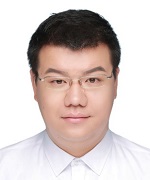
Assoc. Prof. Tian Zhao, North China University of China, China
Dr. Tian Zhao is an Associate Professor at School of Energy Storage Science and Technology, North China University of China, where he focuses on integrated energy system, thermal management of battery, and large-scale thermal energy storage. He received his Ph.D. degree from Tsinghua University, 2019. After that, he worked at The University of Tokyo and Tsinghua University as a postdoctoral researcher, and received the support of Shuimu Scholar project from Tsinghua University. His research is supported by the National Natural Science Foundation of China and National Key R&D Program. He has published more than 70 peer-reviewed journal papers on prestigious journals, including Nature Communications, IEEE Transactions of Sustainable Energy, Applied Energy, and Energy. He received the Second Prize of the Electric Power Science and Technology Progress Award from the Chinese Society of Electrical Engineering in 2021. Most recently, he was selected for Young Elite Scientists Sponsorship Program by CAST in 2024. He is currently a member of Early Career Editorial Board of Frontiers in Heat and Mass Transfer.
Speech Title: Isomorphic analysis and dispatch optimization of integrated energy systems enabled by heat current method
Abstract: Integrated energy systems (IESs) are becoming increasingly important in the era of large-scale renewable energy utilization. However, their analysis is currently based on the combination of heterogeneous models of electrical, thermal, gas, and hydrogen subsystems. This heterogeneity brings severe obstacles in understanding the characteristics of IESs, making their holistic yet efficient analysis and dispatch optimization challenging. This presentation introduces an isomorphic modeling, analysis and optimization method for IESs based on heat current method, providing an efficient tool for the community. First, the newly proposed heat current method is introduced, by which the thermal systems can be described in the form of electrical circuits. An efficient solution algorithm is correspondingly proposed for solving heat current models of thermal systems, enabling their holistic and accurate analysis. Next, the isomorphic analysis and optimization method for IESs is introduced, where the entire system is modeled by combining the model of electrical and gas subsystems and heat current model of the thermal subsystem. Several cases of system analysis and dispatch are provided to demonstrate the efficacy of the proposed methodology. It can be found that the isomorphic modeling of IESs is more reliable as the isomorphic model reproduces the physics of all subsystems faithfully. In sum, our method offers a novel yet practical solution for IES analysis and optimization, enabling their reliable efficiency improvement.
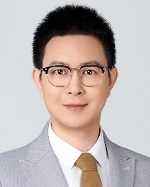
Asst. Prof. Rao Fu, Shandong Jianzhu University, China
Dr. Rao Fu received his B.Sc. degree in electrical engineering from Chongqing University, Chongqing, China, in 2005, and M.Sc. and Ph.D. degree in electrical engineering from State University of New York at Buffalo, NY, USA, in 2013 and 2020, respectively. He is currently an Assistant Professor with School of Information and Electrical Engineering in Shandong Jianzhu University, Jinan, China. His research interests include DER integrated micro/nano-grid optimization, non-intrusive load monitoring, and electrical energy network visualization. He is also a member of IEEE-USA, Buffalo Section.
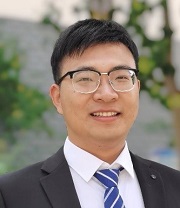
Dr. Cheng Cheng, Shandong University, China
Cheng Cheng, IEEE Member, received his Ph.D. in Electrical Engineering from Nanjing University of Aeronautics and Astronautics. He is currently a postdoctoral researcher at the School of Control Science and Engineering, Shandong University. His primary research focuses on absolute stability analysis and control technologies for renewable energy grid-integration systems. As the first author, he has published 10 papers in SCI top journals, including IEEE TIE, IEEE TPEL, etc. He has led several research projects, including: National Natural Science Foundation of China (NSFC) Youth Program, China Postdoctoral Science Foundation General Program, Shandong Provincial Natural Science Foundation Youth Program, etc.
Speech Title: Absolute Stability of Grid-Connected Inverter Systems: Full-Order Nonlinear Analysis Theory in the Frequency Domain
Speech Abstract: As the critical interface device connecting new energy sources to the power grid, the stable operation of grid-connected inverters is essential for the secure functioning of new energy grid integration systems, yet these inverters become prone to instability under large/transient disturbances where traditional small-signal methods fail to analyze the stability of inverters with inherent nonlinear characteristics under such conditions. Accordingly, this report introduces a high-order global asymptotic stability theory (namely, absolute stability) capable of analyzing the interactive coupling among synchronization loops, current control loops, and weak grids in grid-connected inverters in the frequency domain, and deriving absolute stability criteria for single-phase grid-connected systems, three-phase grid-connected systems, and multi-inverter clusters. The proposed stability theory thus embeds the system's inherent nonlinear dynamics while retaining the merits of frequency-domain analysis, exhibiting rigorous, intuitive, universal, and practical characteristics.
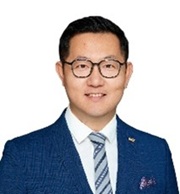
Assoc. Prof. Jin Li, Tianjin University, China
Jin Li (Member, IEEE) was born Tangshan, China, in 1988. He received the B.S. and Ph.D. degree in Electrical Engineering from Tianjin University in 2012 and 2017. From 2017 to 2019, he worked as a post-doctor in Tianjin University with the support of National Postdoctoral Program for Innovative Talents. From October 2018 to January 2019, he was a visiting researcher in Measurement and Electric Machine Control Laboratory of Tokyo City University. Now he is an associate professor at the School of Electrical Engineering and Information, Tianjin University. His research interests are focused on the designing and improvement of solid dielectrics for HVDC power cable and gas-insulated transmission line. He has authored or co-authored more than 100 journal papers and obtained Tianjin Science and Technology Progress Second Award.
Speech Title: Residual Stress in GIL Tri-post Insulators: Modelling, Detection and Suppression
Speech Abstract: Metal-enclosed gas-insulated transmission pipeline represents the optimal solution for achieving large-capacity (GW-level, current-carrying capacity >8000A) power transmission in extreme environments such as high altitudes, significant elevation differences, and variable climates. Tri-post insulators serve as the core components of high-capacity GIL, providing both electrical insulation and mechanical support. Their safe and reliable manufacturing directly determines the secure and stable operation of ultra-high voltage transmission systems. This report shares progress in enhancing the curing process for oversized Tri-post insulators, non-destructive testing of residual stresses, and methods for stress suppression. These advancements have facilitated the reliable operation of ultra-high voltage GIL insulators and the stable delivery of clean energy.
Copyright © REPE 2018-2026. All rights reserved.